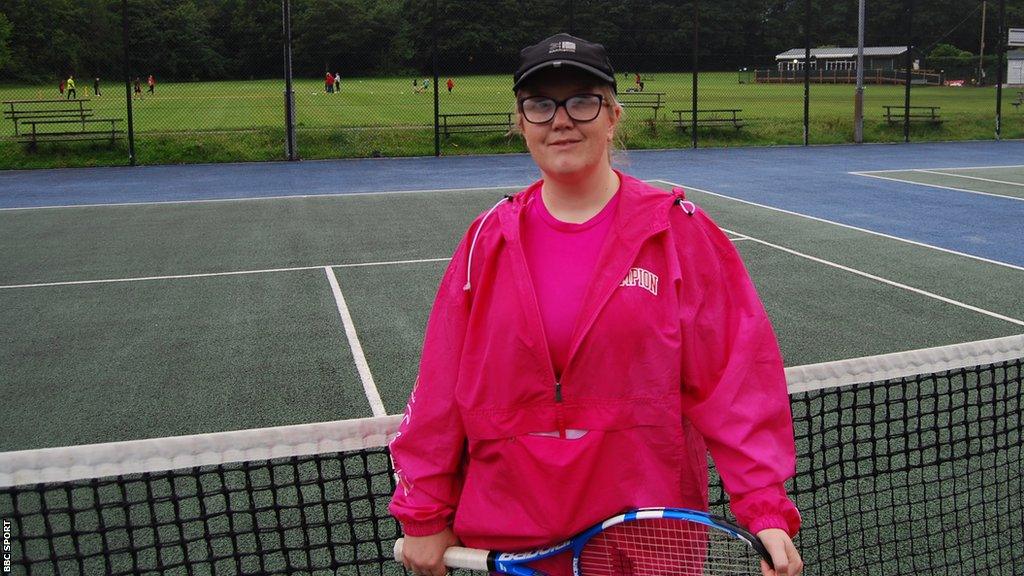Transplant footballers return from inaugural world cup
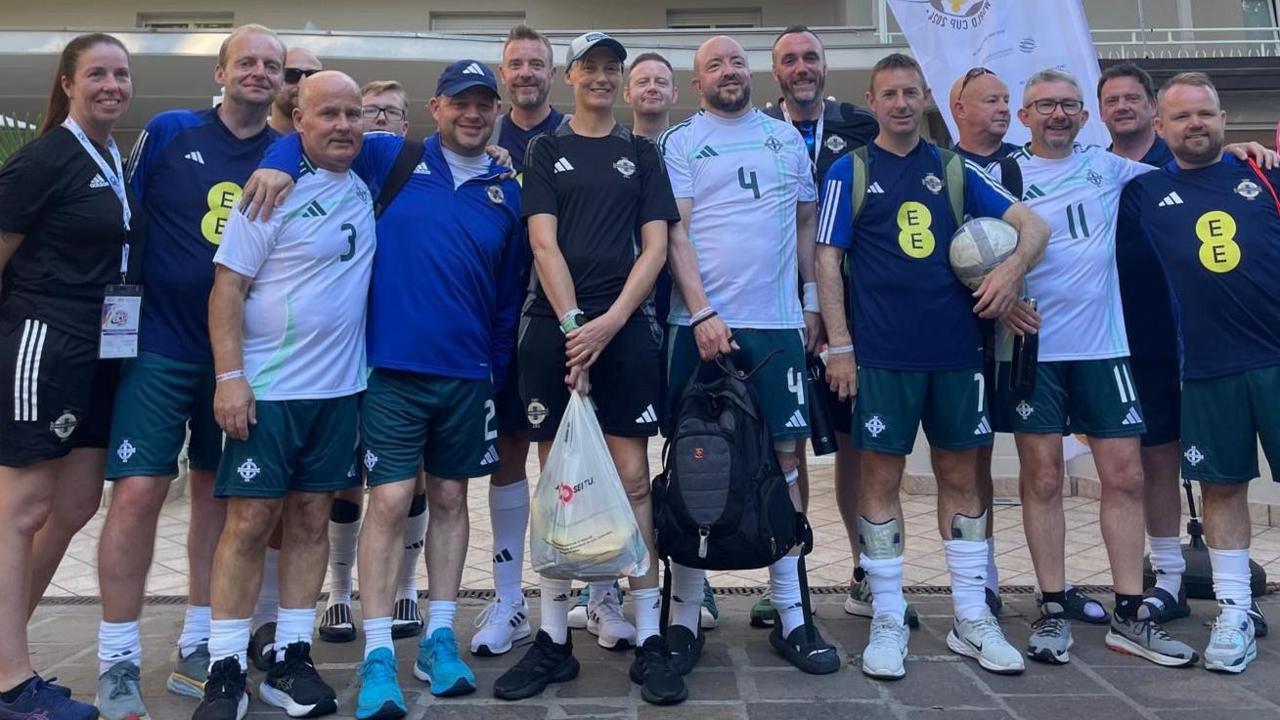
Sixteen Northern Ireland players and three staff members travelled to Italy for the world cup
- Published
A Northern Ireland football team whose players received life-changing organ donations has taken part in their first world cup.
The Transplant Football World Cup was held over the last week in Cervia, Italy, with 11 teams and 180 players.
Orla Smyth, one of the joint managers of the Northern Ireland team, said it was a good opportunity to meet people who have had similar experiences as organ donor recipients.
“It's competitive football, but none of us would be alive and playing if it wasn’t for our donors, and that’s a big element of appreciation,” she said.
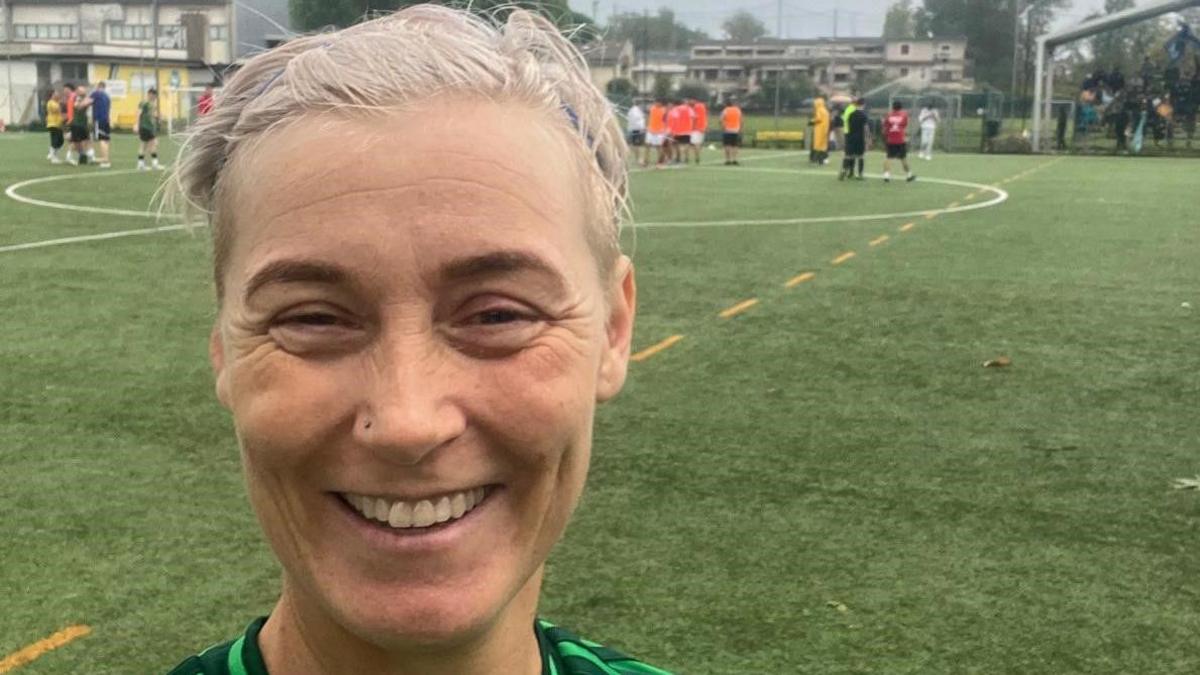
Co-manager Orla Smyth has had two kidney transplants
The tournament began last Sunday with the teams split into two groups. The structure of the games involves seven-a-side teams playing fifteen-minute halves.
The rules mirror those of a standard football game and group competition. The only difference is there are two referees, and players are not allowed to have contact.
Orla said playing sport had been ruled out previously because of the risk involved for patients after their transplants. However, specialists later decided that the risk was 'minimal’.
“They’ve adapted the rules a little bit so that transplant recipients feel more comfortable getting into playing post-transplant.”
'I thought I'd never play again'
The team formed in the last year when organisers went on a recruitment drive around hospitals in Northern Ireland.
“It's getting the word out there to get people back into the sport so they can keep themselves fit and well physically and mentally,” she said.
One of the players who found out about the team while in hospital was Mark Hughes.
Mark had a kidney transplant 17 months ago and was handed a leaflet about transplant sports while recovering.
“I thought, 'Why not get involved?' I think it’s good because you get to meet people who are in the same circumstances as you," he said.
Since finding out about transplant sports, Mark has competed at the British Transplant Games, external and was also in Italy for the football world cup, external.
Mark said he had a lot to reflect on after the team played their final game in Italy.
“Just over a year ago, I thought I would never play football again, so to get that opportunity made me quite emotional. So onwards and upwards. We’re building for the future.”
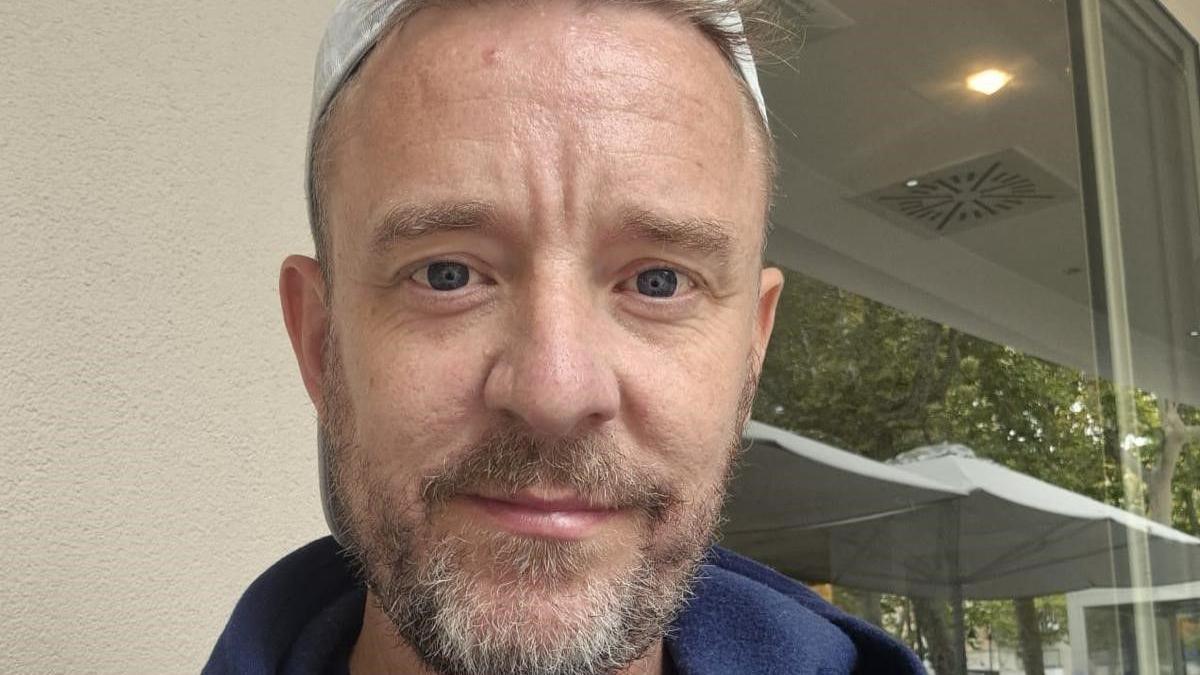
Mark plays on the right wing for the squad
Northern Ireland faced Spain, Australia, America, and Chile in the group stages of the World Cup in Italy.
The team did not make it to the next stage, but Mark said that has not deterred them.
“We have only been together a short time, and these teams have probably been together for years. So for us, it's like a building process; we'll get bigger and we'll get stronger,” said Mark.
Another special element for the players is that one of the referees, Arlene Campbell, is also from Northern Ireland and is a living donor.
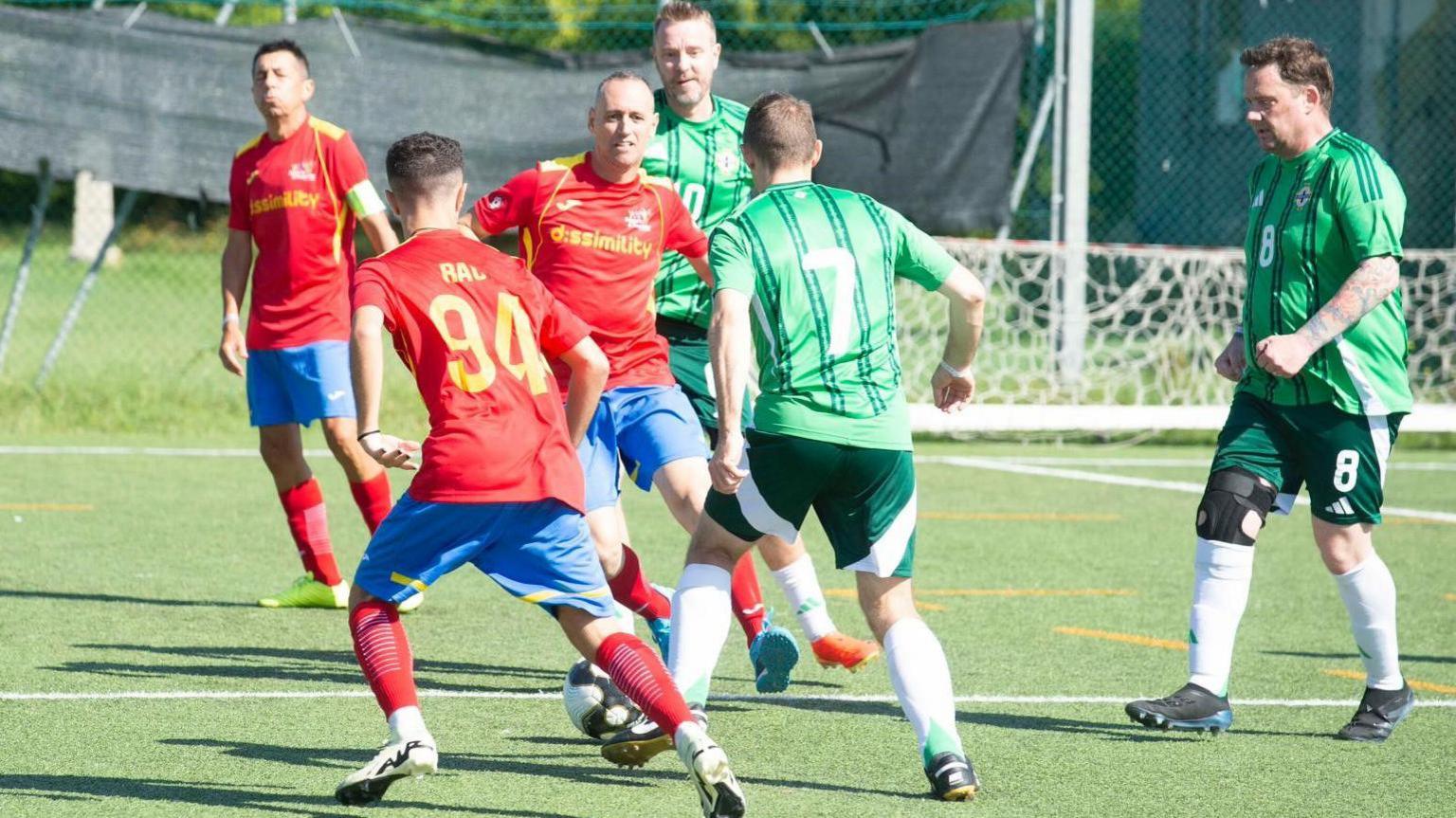
The Northern Ireland team currently train at the Rosario football grounds in Belfast
The team have returned to Northern Ireland and are setting their sights on the world transplant games in Germany next year, as well as preparing for the next transplant football contest in 2026.
“It gives us two years to prepare and to really properly form the football team,” said Orla.
With only four women out of 180 participants competing at this year’s cup, Orla wants to see a drive for more women to take part.
“It would be very difficult to get an all Northern Irish female football team, but I would like to think there’d be an international element for female footballers from all around the world to come together and just play football," she said.
Related topics
- Published29 July 2023
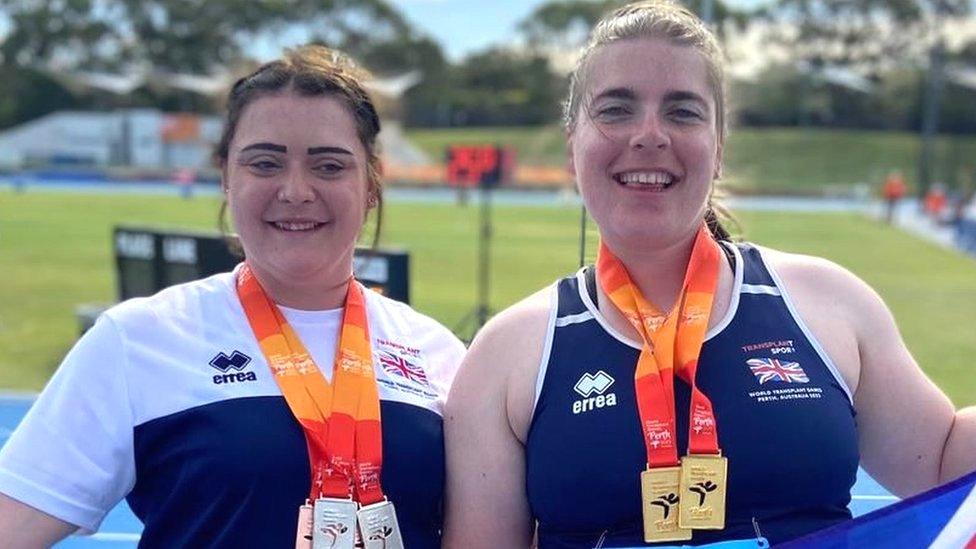
- Published24 August 2024
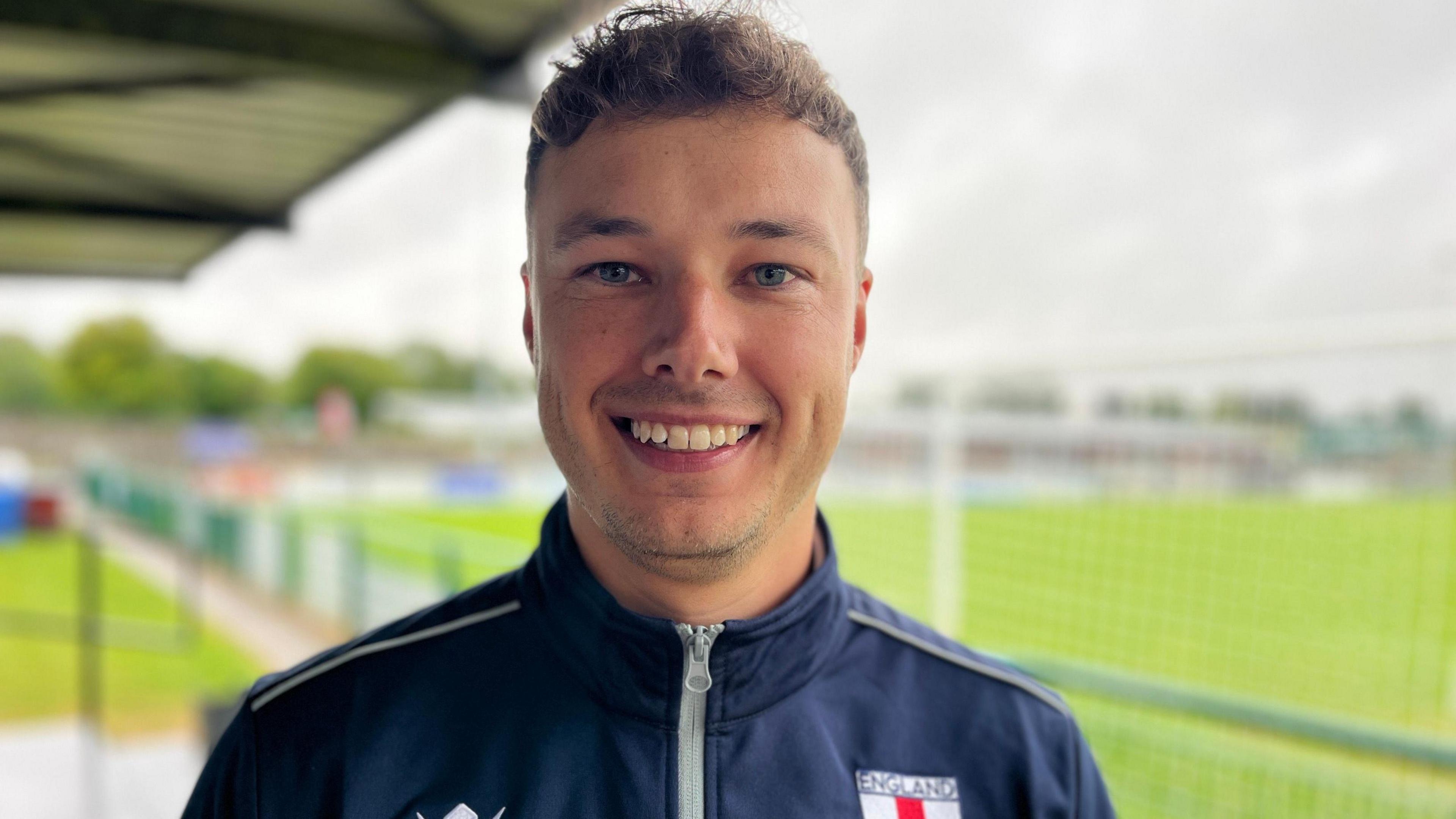
- Attribution
- Published26 July 2023
